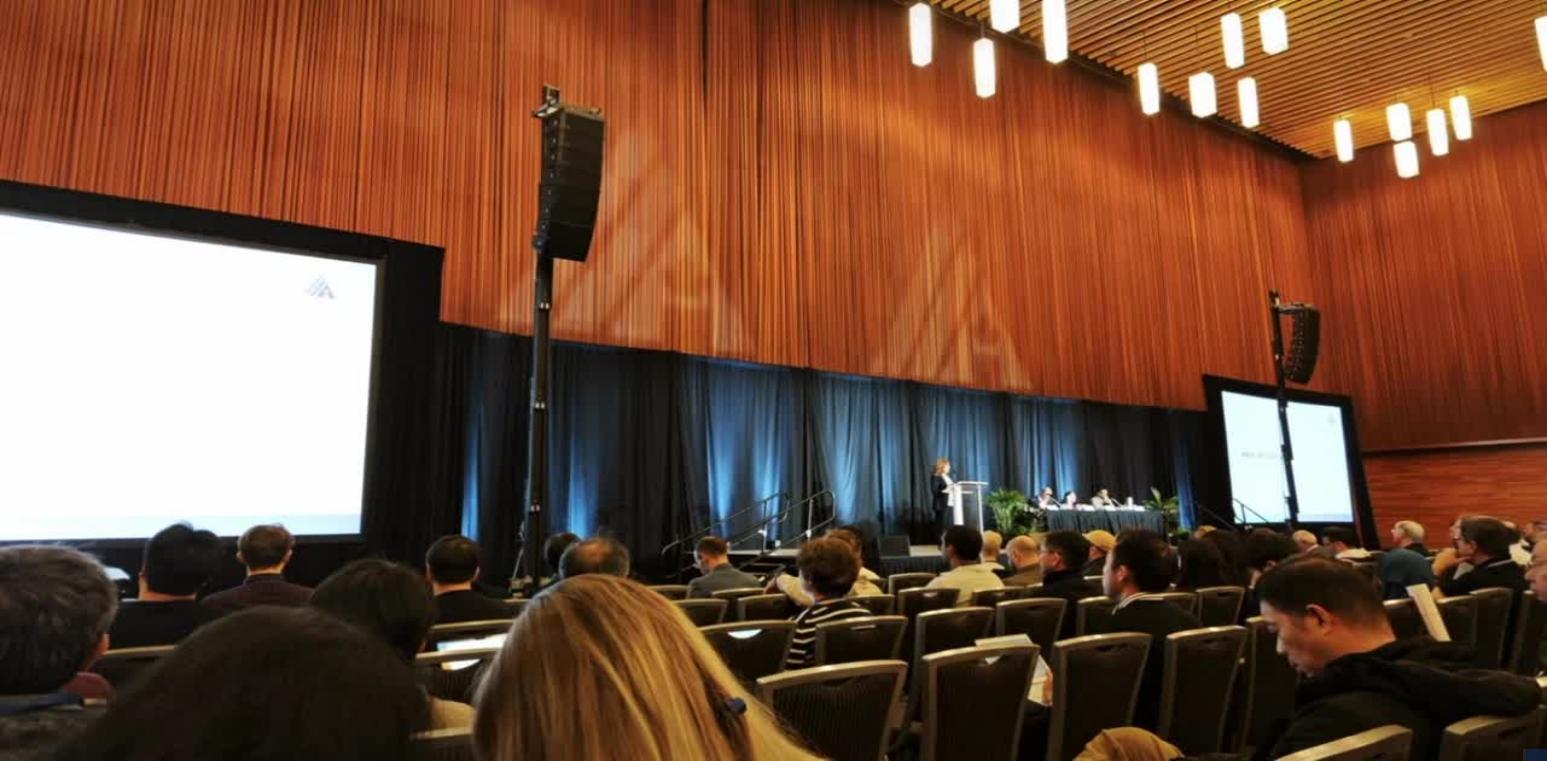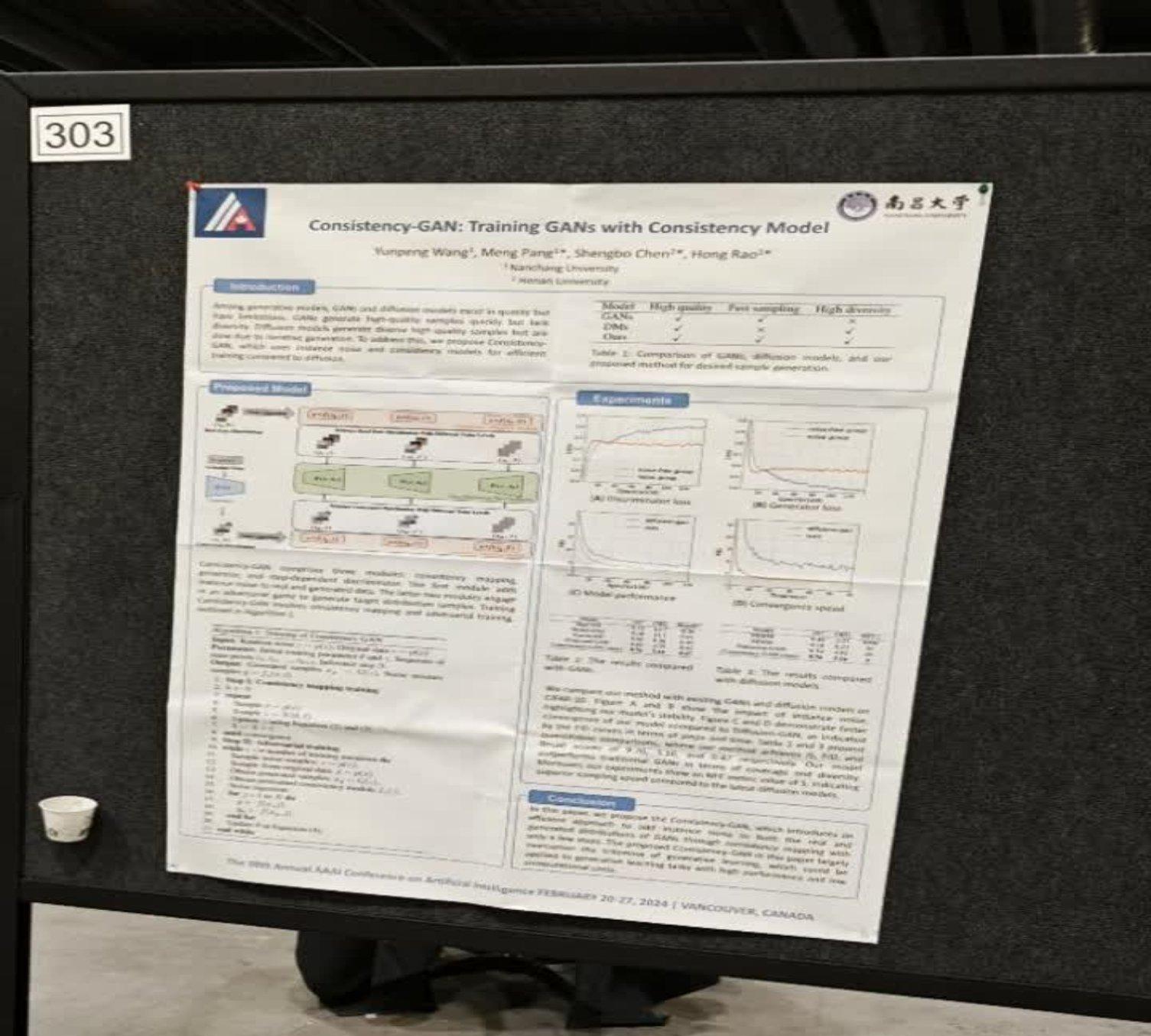The paper titled “Consistency-GAN: Training GANs with Consistency Model” by Wang Yunpeng, a master’s student enrolled in 2022 from the School of Software of Nanchang University, has been included in the proceedings of the 38th Annual Conference of the Association for the Advancement of Artificial Intelligence (AAAI). Wang Yunpeng is the first author of the paper, with Professor Rao Hong and Professor Pang Meng from Nanchang University, and Professor Chen Shengbo from Henan University as co-corresponding authors, NCU as the first author affiliation. This marks the first time a master's student from the School of Software has published a paper at an A-class international conference recommended by the China Computer Federation (CCF).


the 38th Annual AAAI Conference


the poster for Wang’s research paper at AAAI conference venue
The paper focuses on the performance issues of generative-learning-task models and introduces, for the first time, a method that utilizes a Consistency Mapping module to stabilize the adversarial training process. By introducing instance noise into the samples, the Consistency Mapping module ensures the diversity of generated samples while effectively avoiding mode collapse, thereby stabilizing the adversarial training process. This approach simultaneously addresses the slow sampling speed issue when using traditional diffusion models for generative tasks. It lowers computational costs, enhances model convergence speed, and maintains sample quality.

The paper's model, Consistency-GAN, comprises three modules: (1) the Consistency Mapping module, used to blend instance noise into the real and generated distributions; (2) the generator module, responsible for outputting the generated distribution; and (3) the discriminator module, capable of distinguishing between the real and generated distributions based on noise levels. The introduction of the Consistency Mapping module provides an efficient method, requiring only a few steps (Number of Function Evaluations), to incorporate instance noise into both the real and generated distributions of the GAN. The Consistency Mapping module is a mapping network that can map points on the trajectory of the probability flow ordinary differential equation (PF ODE) back to the origin. It achieves a reversible mapping between the original data distribution and the noise-perturbed data distribution. This point-to-point mapping network significantly reduces the time and computational cost needed to learn diffusion trajectories through the iterative generation process. By introducing noise into the original and generated data during the training of the GAN's generator and discriminator, it allows dynamic adjustment of the noise injection levels based on the mapping steps. The algorithmic process is as follows:

The AAAI conference, established in 1979, is a premier international event in the field of artificial intelligence. Organized by the Association for the Advancement of Artificial Intelligence (AAAI), it aims to advance research and applications in artificial intelligence and enhance public understanding of the field. AAAI is recommended by the China Computer Federation as a Class A conference (CCF-A) and is also classified as an A* conference by Core Conference Ranking, with an impact factor (IF) of 25.57. The conference primarily covers topics such as artificial intelligence, machine learning, theoretical computer science, natural language processing, and mathematical optimization.
The AAAI-24 conference was held from February 20th to February 27th in Vancouver, Canada. Wang Yunpeng attended the conference, delivering presentations and showcasing a poster. His participation contributed to the increased international influence of Nanchang University in the field of computer science. The acceptance of Wang's paper also signifies a significant advancement in the cultivation of master graduates in the School of Software at Nanchang University.
Editor: Ouyang Qian
Executive editor: Tu Jinfeng




